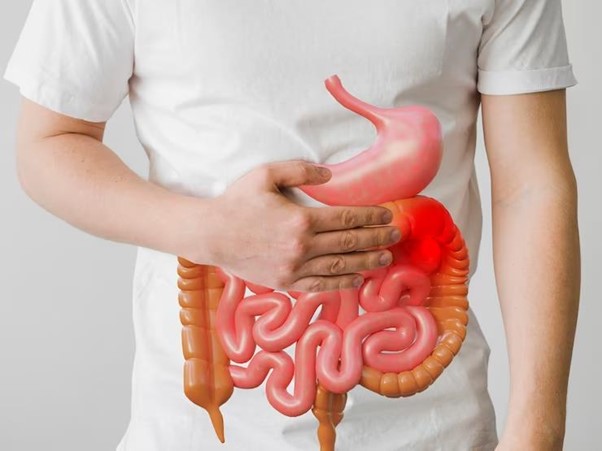Crohn’s disease is a chronic inflammatory condition that primarily affects the gastrointestinal (GI) tract, causing inflammation and damage to the lining of the digestive system. This condition can impact any part of the GI tract, from the mouth to the anus, leading to a range of symptoms that vary in severity and can include:
- Abdominal pain: Often crampy and localized in the lower right abdomen.
- Diarrhoea: Sometimes severe and accompanied by urgency.
- Fatigue: Due to inflammation and the body’s immune response.
- Weight loss: Resulting from reduced appetite or malabsorption.
- Complications: Such as bowel obstruction, abscesses, or fistulas in more severe cases.
Diagnosis
Diagnosing Crohn’s disease involves a thorough process that includes:
- Medical History Review: Discussing symptoms and past medical conditions.
- Physical Examinations: Checking for signs of inflammation or abdominal tenderness.
- Imaging Tests: Such as CT scans or MRIs to visualize the GI tract and detect inflammation or complications.
- Endoscopic Procedures: Like colonoscopy or sigmoidoscopy to directly examine the lining of the intestine and take tissue samples (biopsies) for analysis under a microscope.
Treatment
Treatment plans for Crohn’s disease are personalized based on the individual’s symptoms, disease severity, and overall health. Key components of treatment include:
- Medications: Including anti-inflammatory drugs (such as corticosteroids and 5-aminosalicylates), immunosuppressants (like azathioprine or methotrexate), biologic therapies (such as infliximab or adalimumab), and antibiotics (for treating bacterial overgrowth or infections).
- Dietary Changes: Following a low-residue diet to reduce fibre intake and ease digestion, or specific elimination diets under the guidance of a healthcare professional to identify and avoid trigger foods.
- Lifestyle Modifications: Incorporating stress management techniques (like yoga or meditation), maintaining regular exercise (which can reduce inflammation and improve overall well-being), and ensuring adequate sleep (to support immune function and healing).
- Surgery: Reserved for cases where medications are ineffective or complications arise, surgery may involve removing damaged portions of the intestine or repairing fistulas.
Managing the Disease
Living with Crohn’s disease requires ongoing management to minimize symptoms and prevent flare-ups. This involves:
- Regular Monitoring: Keeping scheduled follow-up appointments with healthcare providers to monitor disease progression, adjust treatment as needed, and address any new symptoms or concerns.
- Adherence to Treatment: Taking medications as prescribed and following dietary and lifestyle recommendations consistently.
- Patient Education: Understanding the disease, its triggers, and available treatment options empowers individuals to actively participate in their care and make informed decisions.
While Crohn’s disease can be challenging, understanding your symptoms, getting proper care from healthcare providers, and making healthy choices can help you manage the condition effectively and live a full life. Support from healthcare teams, family, and friends is important in navigating this journey with Crohn’s disease.

